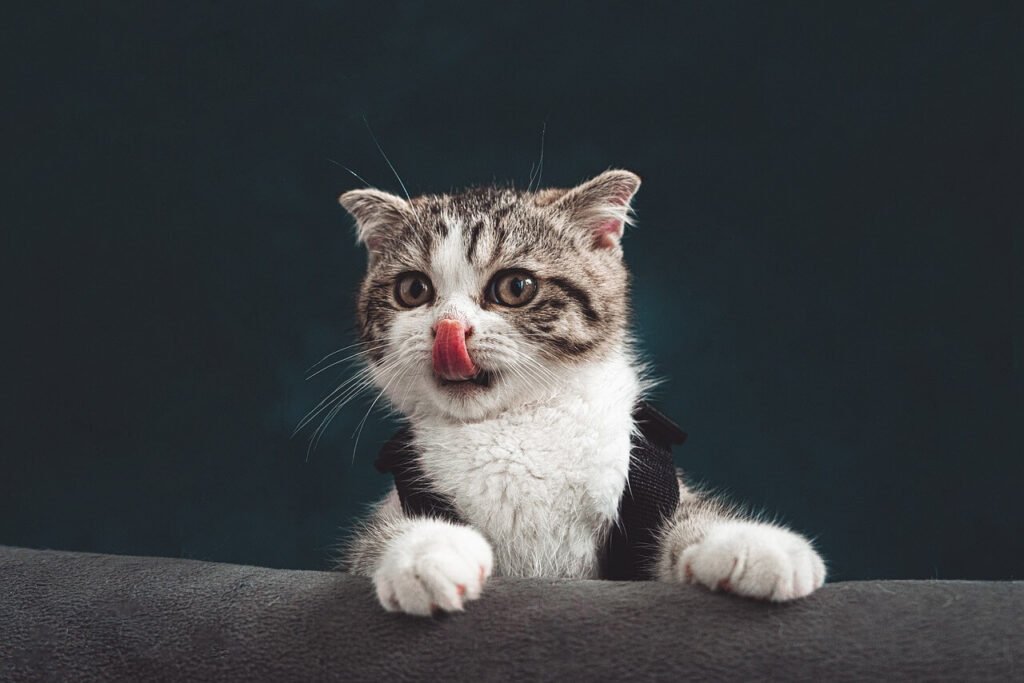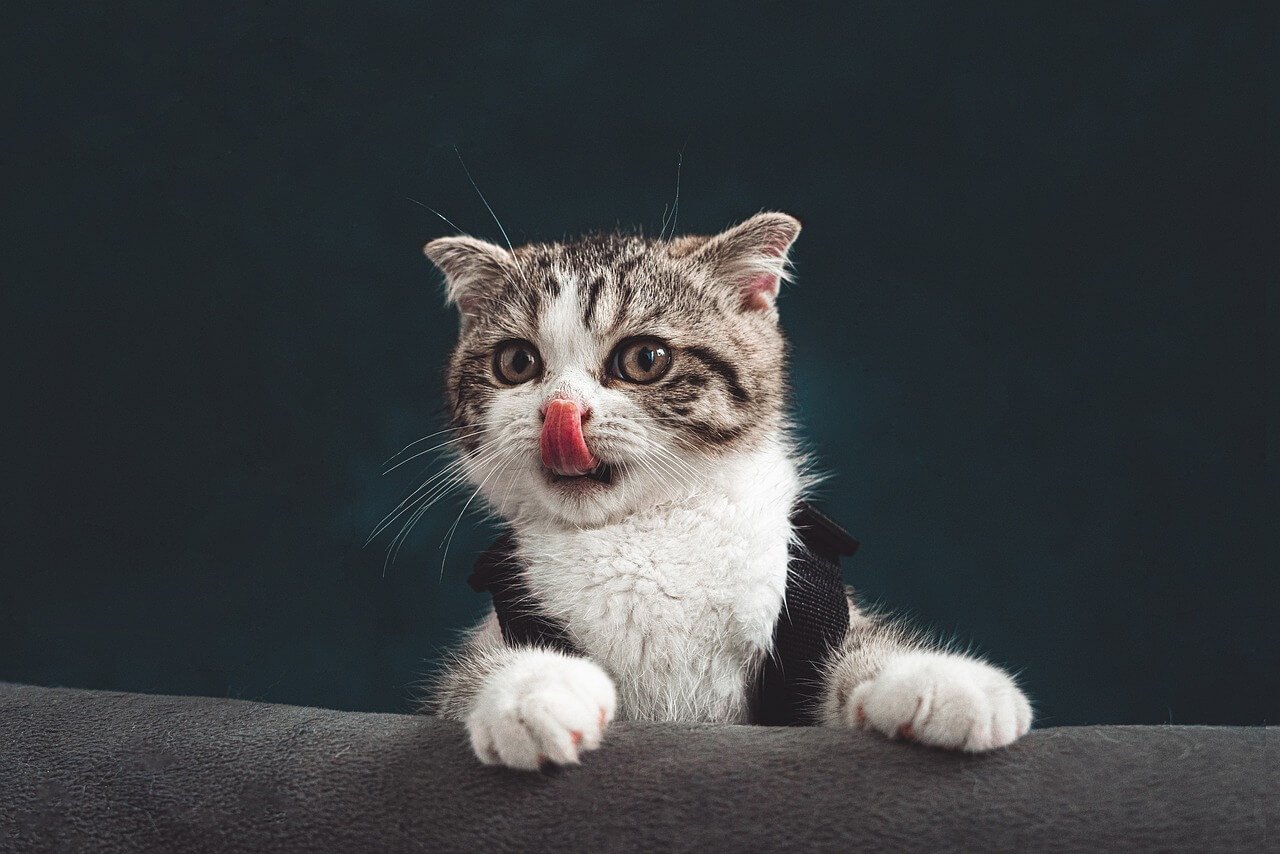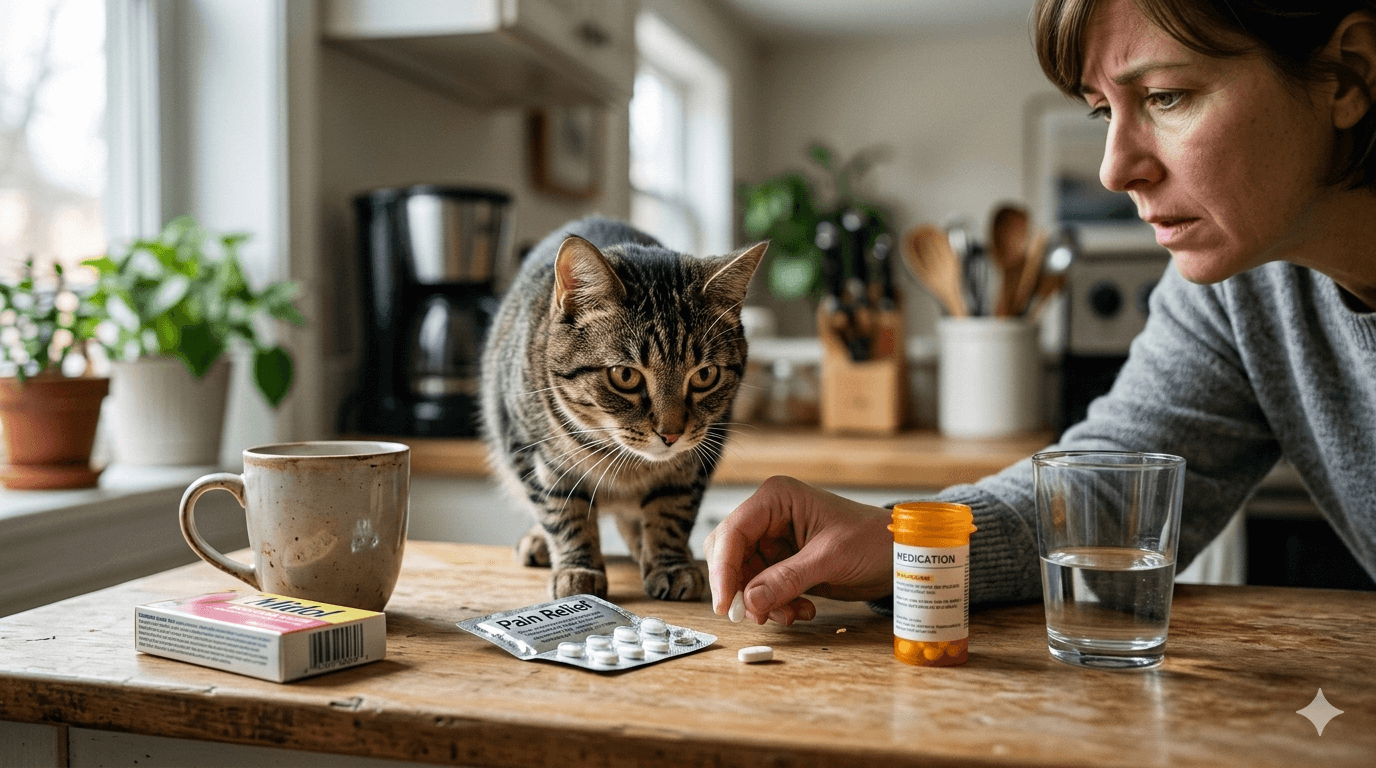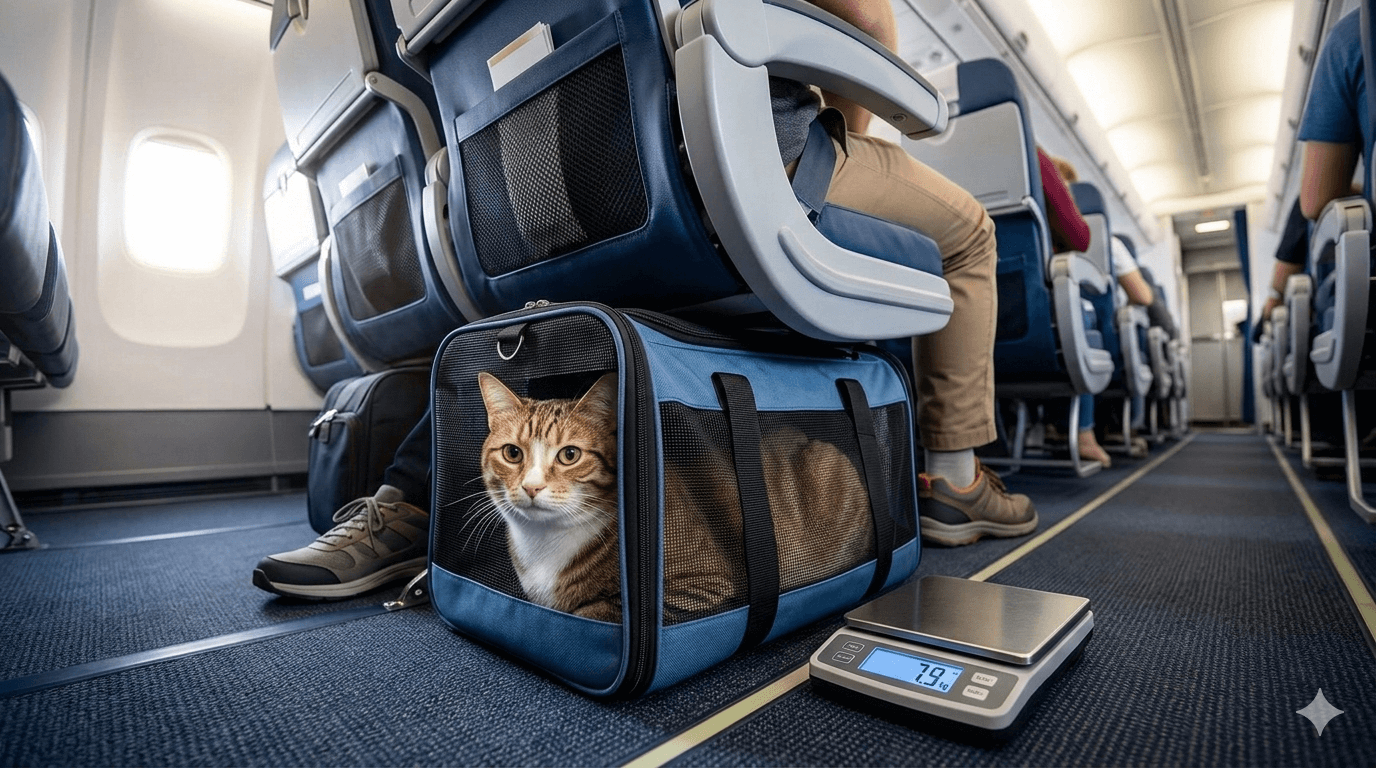Why Is My Cat Eating Litter? Understanding the Behavior and What to Do
Cats are naturally curious creatures, and their quirky behaviors often leave us scratching our heads. One such puzzling habit is when a cat starts eating litter. While it might seem odd or even alarming, this behavior can stem from a variety of reasons—some harmless and others requiring immediate attention. As a cat owner, understanding why your feline friend might be engaging in this unusual activity is crucial for their health and well-being. Let’s explore the potential causes, how to address them, and what you can do to prevent it from happening again.
What Could Be Driving This Behavior? Common Reasons Behind Litter Consumption
When your cat starts munching on litter, it’s important to consider the underlying reasons. Cats don’t typically eat non-food items without a trigger, and identifying the cause can help you address the issue effectively. Below are some common explanations for this behavior:
Nutritional Deficiencies
A lack of essential minerals or vitamins in your cat’s diet could lead them to seek nutrients elsewhere, including their litter box.Curiosity in Kittens
Younger cats are more likely to experiment with their environment, and tasting litter might simply be part of their exploration phase.Boredom or Stress
Cats that are understimulated or anxious may develop strange habits, including eating non-food items like litter.Underlying Medical Conditions
Certain health issues, such as anemia or gastrointestinal disorders, might cause your cat to exhibit unusual behaviors, including litter consumption.Attraction to Scent or Texture
Some cats may find the smell or texture of certain types of litter appealing, leading them to nibble on it out of curiosity.
If your cat has started eating litter, it’s essential to observe their overall behavior and consult a veterinarian to rule out serious health concerns.
Why Eating Litter Can Be Dangerous: Potential Health Concerns
While occasional litter nibbling might not seem like a big deal, it can pose several health risks for your cat. Understanding these dangers can help you take swift action to protect your furry friend. Here are some of the potential consequences of litter consumption:
Intestinal Blockages
Ingesting large amounts of litter can lead to blockages in your cat’s digestive system, which may require surgical intervention.Toxicity from Clumping Litters
Clumping litters are designed to expand when wet, and if ingested, they can cause dangerous swelling inside your cat’s stomach or intestines.Exposure to Harmful Chemicals
Some scented or chemically treated litters contain ingredients that could be toxic if consumed by your cat.Parasite Infections
Litter boxes can harbor bacteria or parasites, and eating litter increases the risk of your cat ingesting harmful microorganisms.Dehydration Risks
Consuming litter can sometimes lead to dehydration, especially if the litter absorbs moisture from your cat’s digestive tract.
To keep your cat safe, it’s important to monitor their behavior closely and switch to safer litter options if necessary.
Check this guide 👉How Deep Should Cat Litter Be? Best 7 Expert Tips!
Check this guide 👉How Often Should I Change Cat Litter? Best 7 Expert Tips!
Check this guide 👉DIY Cat Litter Box: Best 7 Expert Tips!

Possible Causes | Solutions to Try |
|---|---|
Nutritional deficiencies | Switch to a high-quality, balanced diet. |
Curiosity in kittens | Provide interactive toys and distractions. |
Boredom or stress | Increase playtime and mental stimulation. |
Underlying medical conditions | Schedule a vet check-up immediately. |
Attraction to scent or texture | Experiment with different types of litter. |
Stopping the Behavior: Proactive Steps to Discourage Litter Consumption
Preventing your cat from eating litter requires a combination of environmental adjustments and behavioral interventions. Here are some strategies to help discourage this habit:
Switch to Natural or Non-Clumping Litter
Opt for plant-based or paper-based litters that are less likely to cause harm if ingested.Provide Mental Stimulation
Engage your cat with puzzle feeders, interactive toys, or regular play sessions to reduce boredom.Monitor Diet Closely
Ensure your cat’s food meets all their nutritional needs, and consider adding supplements if recommended by your vet.Clean the Litter Box Regularly
A clean litter box is less enticing for curious cats, reducing the likelihood of them nibbling on its contents.Consult Your Veterinarian
If the behavior persists, schedule a thorough health check to rule out any underlying medical issues.
By taking these proactive steps, you can create a safer and more stimulating environment for your cat, minimizing the chances of litter-eating behavior.
Exploring Safer Options: Litter Substitutes That May Help
If your cat continues to eat litter despite your efforts, it might be time to explore alternative options. Safer substitutes can reduce the risks associated with litter consumption while still meeting your cat’s hygiene needs. Here are some alternatives to consider:
Paper-Based Litter
Made from recycled materials, paper-based litters are biodegradable and less likely to cause harm if ingested.Wood Pellet Litter
These eco-friendly pellets are free from harmful chemicals and break down into sawdust when wet, making them less appealing to chew on.Corn or Wheat-Based Litter
Natural and biodegradable, these litters are less likely to cause intestinal blockages compared to clay-based options.Silica Gel Crystals
While not edible, silica gel crystals are non-toxic and highly absorbent, reducing the need for frequent changes.Homemade Solutions
For short-term use, shredded newspaper or plain sand can serve as temporary substitutes until the behavior subsides.
Trying out these alternatives can help you find a solution that works best for your cat while keeping them safe from potential hazards.
Why Is My Cat Suddenly Interested in Litter? Observing Behavioral Cues
If your cat has recently started showing interest in their litter box beyond its intended purpose, it could be a sign of curiosity or an underlying issue. Observing their behavior can provide valuable insights into why they might be experimenting with eating litter. Here are some signs to watch for:
Increased Time Near the Litter Box
If your cat is spending more time sniffing or pawing at the litter, it may indicate curiosity about its texture or scent.Chewing or Mouthing Objects
Cats that chew on non-food items like litter may be exploring their surroundings or seeking sensory stimulation.Changes in Eating Habits
A sudden shift in appetite or interest in unusual substances could signal nutritional deficiencies.Frequent Digging Without Eliminating
Excessive digging without using the litter box might suggest dissatisfaction with the litter type or an urge to taste it.Pica-Like Behavior
Persistent chewing or eating of non-food items, including litter, could indicate a compulsive disorder known as pica.
By paying close attention to these behaviors, you can better understand whether your cat’s interest in litter is harmless exploration or a sign of something more serious.
How Your Home Environment Could Influence Litter Consumption
Sometimes, external factors in your home environment can trigger or encourage litter-eating behavior in cats. Identifying and addressing these triggers can help curb the habit. Below are some environmental factors to consider:
Stressful Changes in Routine
Moving homes, introducing new pets, or changes in daily schedules can stress your cat, leading to unusual behaviors like eating litter.Lack of Mental Stimulation
Cats that don’t receive enough playtime or mental challenges may turn to inappropriate activities, such as nibbling on litter.Unappealing Litter Choices
Strongly scented or uncomfortable litters may repel your cat from using the box but attract them to taste it instead.Overcrowded Living Spaces
Cats in cramped or chaotic environments may develop odd habits due to lack of personal space or privacy.Inconsistent Litter Box Cleaning
A dirty litter box can make cats curious about the contents, prompting them to investigate further by tasting the litter.
Addressing these environmental triggers can help reduce your cat’s interest in consuming litter and promote healthier habits.
Building a Plan to Prevent Future Litter-Eating Episodes
Preventing your cat from eating litter requires a long-term strategy that combines dietary adjustments, environmental enrichment, and consistent monitoring. Here are some strategies to implement for lasting results:
Introduce Interactive Toys
Puzzle feeders and interactive toys can redirect your cat’s attention away from the litter box and onto more appropriate activities.Establish a Routine
Consistent feeding, play, and cleaning schedules can help reduce stress and minimize unusual behaviors.Gradually Transition to New Litter
If switching litters, do so gradually by mixing old and new types to avoid confusing or tempting your cat.Supervise Playtime Near the Litter Box
Keeping an eye on your cat during playtime can prevent them from accessing the litter box unnecessarily.Regular Vet Check-Ups
Scheduling routine veterinary visits ensures that any underlying health issues are caught early and addressed promptly.
By implementing these strategies, you can create a safe and engaging environment that discourages litter-eating behavior while supporting your cat’s overall well-being.
Frequently Asked Questions About Cats Eating Litter
Is it normal for cats to eat litter?
No, it’s not normal. While occasional curiosity might drive a cat to taste litter, consistent consumption indicates an underlying issue.
Can eating litter make my cat sick?
Yes, it can lead to intestinal blockages, toxicity, or infections, depending on the type of litter consumed.
Should I change my cat’s litter if they’re eating it?
Yes, switching to a safer, natural option can reduce the risks associated with litter ingestion.
When should I take my cat to the vet?
If the behavior persists or is accompanied by other symptoms like vomiting or lethargy, consult your vet immediately.
Can boredom cause my cat to eat litter?
Yes, understimulation can lead to unusual behaviors, including eating non-food items like litter.
Final Thoughts: Addressing Litter-Eating Behavior with Care and Patience
Understanding why your cat might be eating litter—and taking steps to address the root cause—is key to ensuring their long-term health and happiness. Whether it’s adjusting their diet, providing more enrichment, or switching to a safer litter option, there are many ways to tackle this issue. Remember, patience and observation are your greatest tools in helping your feline companion overcome this habit. With love, care, and a little detective work, you can create a safe and nurturing environment where your cat thrives.
Can I Give My Cat Midol? Best 7 Expert Tips! – Learn the risks, symptoms, and safe alternatives to keep your cat healthy and avoid toxic reactions.
Can I Give My Dog Midol? Best 7 Expert Tips! – Discover the risks, safe alternatives, and expert advice to keep your dog safe from accidental poisoning.
Maximum Weight for Cats on Planes: Best 7 Expert Tips! – Learn airline policies, tips to stay compliant, and ensure safe travels for your feline friend.
Max Weight for Dogs on Planes: Best 7 Expert Tips! – Discover airline weight limits, safe travel tips, and solutions for flying with your dog stress-free.





